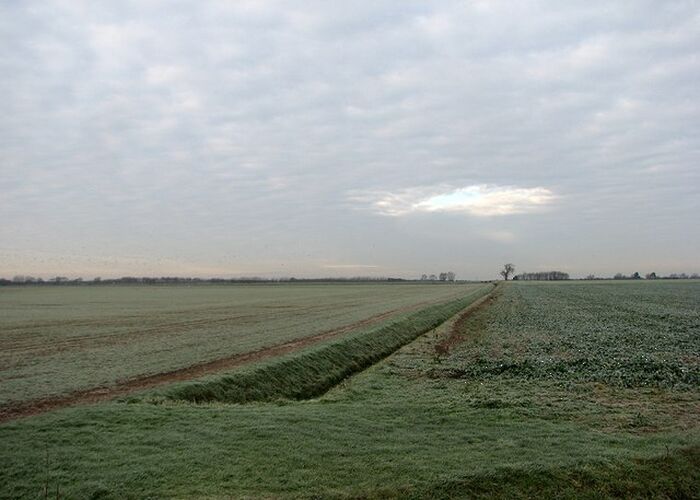Student drug users are complicit in the drug trade’s abuses
Rachel Bourne argues that, whilst legalisation is needed to end the hidden consequences of the illegal drug trade for vulnerable people, students must acknowledge their role

I let down one of Kings’ (not unfounded) stereotype miserably – I have never taken illegal drugs. As a result I risk coming across as a ‘holier than thou’ moralist. It is not my intention to be vindictive, judgemental or patronising. The ethics surrounding illegal drug use creates a ‘cognitive dissonance’, particularly among ambitious young people with aspirations to make the world a better place. To deal with our discomfort, as with many issues, we push the consequences of our actions away. It is easier, nicer this way. However, if we want to start caring about the abuse of some of the most vulnerable in this university town, this is no longer an option. Yes, the end of the exploitation of people involved in the drug industry in the UK will not come until drugs are decriminalised. But until this change comes, drug users remain complicit in a system of abuses.
We must scrutinise these consequences in all areas of their lives, regardless of how uncomfortable it is. It is widely known that the drug industry is problematic. From the blood on cocaine from South America, heroin from Afghanistan, ketamine from India and China, the drug industry is responsible for the physical, sexual and psychological abuse of thousands of some of the most vulnerable people across the globe. Within the UK, too, exploitation is beginning to be recognised; the term ‘blood cannabis’ is used to refer to the growing share of cannabis on the market produced by children and vulnerable adults trafficked from the Global South. Another area of the UK drug industry that relies on modern slavery is the so-called ‘county lines’. Yet few people are aware of the extent to which they operate within our university city.
Those trafficking the drugs are the most vulnerable in society
‘County lines’ are operations in major UK cities where dealers seek new markets outside urban hubs, such as Cambridge, using burner phones (or ‘lines’). It is estimated that there are over a thousand county lines operating in the UK, with some lines making more that £800,000 per year. These operations are so lucrative because a reliance on forced labour means that city based dealers keep the vast majority of profits. Those trafficking the drugs are the most vulnerable in society; children recruited from care homes, special educational needs schools and pupil referral units, as well as adults with learning disabilities and mental health problems. These people are recruited with promises of drugs, money or status, and controlled using physical, emotional and sexual violence.
Cambridge is a hotspot for such exploitation, with 25 county lines being actively investigated by the police as of March this year. The scale of abuse is not yet fully understood, but the picture that is beginning to emerge is harrowing. For example, last July, a man was murdered in Cambridge as a result of turf warfare between county line dealers. In January, police detained a 13 year old boy working for Bedford-based county lines who had been placed in a house of drug addicts in Cambridge. In February, after raiding a house in Cherry Hinton of a woman involved in county lines, police found empty drug wrappings and crack pipes among toys in her nine year old son’s bedroom.
Acknowledging these problems requires Cambridge students to acknowledge their complicity in a system of abuse
The handful of such cases which have been emotively reported in local and national news barely scratch the surface of the problem of drug related exploitation in our city: in March, in a report about county lines and related abuses, Cambridge county council identified 158 children as at risk from sexual exploitation and 64 from criminal exploitation. To put this into perspective, the population of children at risk of exploitation as a result of the drug trade in Cambridge is greater than the combined undergraduate population of St Edmunds.
Why don’t students know about this? It is true that the poverty of the town rarely penetrates the vacuum of privilege in which the university exists. However, the problem is more complicated than simply ignorance caused by this socio-economic divide. Acknowledging these problems requires Cambridge students to acknowledge their complicity in a system of abuse.
The children and vulnerable adults supplying drugs in Cambridge are meeting a demand. We can’t continue to shy away from the fact that this demand comes, in part, from Cambridge students. Whilst the largest proportion of drugs moving along county lines are heroin and crack cocaine, drugs regularly used by some students such as powdered cocaine, MDMA, cannabis, amphetamines and spice are also commonly distributed in this way. The social scenes of those in gowns are fed by the exploitation of the most vulnerable in the town.
As alluded to, the heart of this problem lies in the UK laws. The ethical issues with the global drug trade would be significantly reduced if drugs were decriminalised. In Portugal, decriminalising drugs reduced the negative impact of drug use on society by reducing harm for drug users, support people struggling with substance misuse and the problems caused by drug related crime. Overdose deaths have since decreased by 80%, and the percentage of new diagnoses of HIV/AIDs attributed to drug users fell from 52% to 6%. If the UK government were serious about tackling drug related problems, they would follow the advice of the Royal Society of Physicians and the Royal Society of Public Health and adopt the same policy.
Yet, this is sidestepping the issue of personal moral responsibility. UK drug laws need to change, and those with an interest in tackling drug related exploitation and abuses need to push for this. However, until this change comes, individual drug users remain complicit in a system of oppression.
We have choices about how we treat ourselves, and choices about how we treat others. No matter how much we want to pretend otherwise, with drugs these two issues are not separate. The decision to take drugs or not implicates not just yourself, but dozens of people caught in a long chain of exploitation, starting with vulnerable people we live alongside in our city, and traveling across the globe.
Your night of euphoria this week may cost you £40 a gram, but it has cost other people in Cambridge an awful lot more.
If you have concerns about someone you know being involved in trafficking, The Modern Day Slavery Foundation's helpline, 0800 0121 700, is open 24 hours a day. For concerns relating to the exploitation of children, the NSPCC's helpline is available on 0808 8005 000. For drug related concerns visit https://www.talktofrank.com/. For concerns about county lines, Cambridgeshire Constabulary have more information here.
 News / SU reluctantly registers controversial women’s soc18 December 2025
News / SU reluctantly registers controversial women’s soc18 December 2025 News / CUP announces funding scheme for under-represented academics19 December 2025
News / CUP announces funding scheme for under-represented academics19 December 2025 Features / Should I stay or should I go? Cambridge students and alumni reflect on how their memories stay with them15 December 2025
Features / Should I stay or should I go? Cambridge students and alumni reflect on how their memories stay with them15 December 2025 Fashion / The art of the formal outfit 18 December 2025
Fashion / The art of the formal outfit 18 December 2025 News / Dons warn PM about Vet School closure16 December 2025
News / Dons warn PM about Vet School closure16 December 2025










